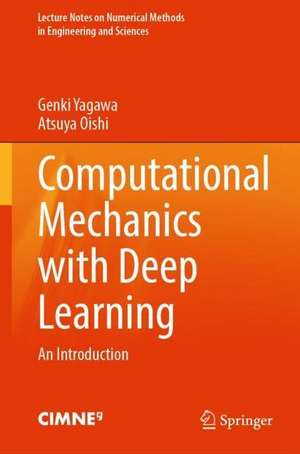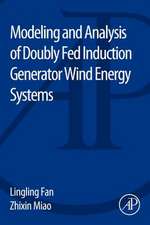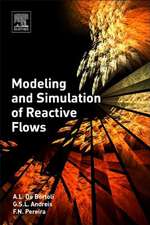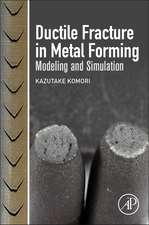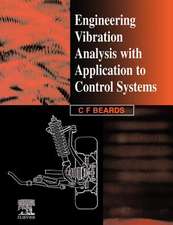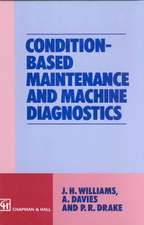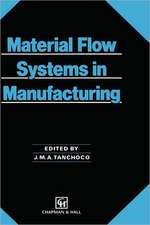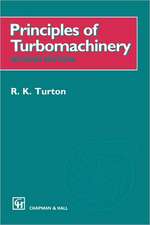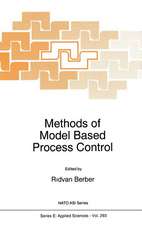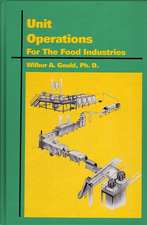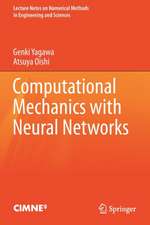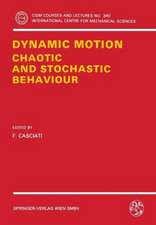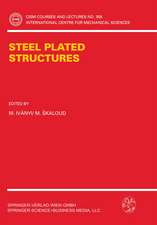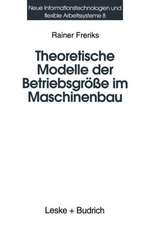Computational Mechanics with Deep Learning: An Introduction: Lecture Notes on Numerical Methods in Engineering and Sciences
Autor Genki Yagawa, Atsuya Oishien Limba Engleză Hardback – noi 2022
| Toate formatele și edițiile | Preț | Express |
|---|---|---|
| Paperback (1) | 458.39 lei 38-45 zile | |
| Springer International Publishing – 2 noi 2023 | 458.39 lei 38-45 zile | |
| Hardback (1) | 599.83 lei 38-45 zile | |
| Springer International Publishing – noi 2022 | 599.83 lei 38-45 zile |
Preț: 599.83 lei
Preț vechi: 779.01 lei
-23% Nou
Puncte Express: 900
Preț estimativ în valută:
114.78€ • 122.74$ • 95.70£
114.78€ • 122.74$ • 95.70£
Carte tipărită la comandă
Livrare economică 14-21 aprilie
Preluare comenzi: 021 569.72.76
Specificații
ISBN-13: 9783031118463
ISBN-10: 3031118464
Pagini: 402
Ilustrații: XIV, 402 p. 181 illus., 141 illus. in color.
Dimensiuni: 155 x 235 mm
Greutate: 0.82 kg
Ediția:1st ed. 2023
Editura: Springer International Publishing
Colecția Springer
Seria Lecture Notes on Numerical Methods in Engineering and Sciences
Locul publicării:Cham, Switzerland
ISBN-10: 3031118464
Pagini: 402
Ilustrații: XIV, 402 p. 181 illus., 141 illus. in color.
Dimensiuni: 155 x 235 mm
Greutate: 0.82 kg
Ediția:1st ed. 2023
Editura: Springer International Publishing
Colecția Springer
Seria Lecture Notes on Numerical Methods in Engineering and Sciences
Locul publicării:Cham, Switzerland
Cuprins
1. Overview.- 2. Mathematical Background for Deep Learning.- 3. Computational Mechanics with Deep Learning.- 4. Numerical Quadrature with Deep Learning.- 5. Improvement of Finite Element Solutions with Deep Learning.- 6. Contact Mechanics with Deep Learning.- 7. Flow Simulation with Deep Learning.- 8. Further Applications with Deep Learning.- 9. Bases for Computer Programming.- 10. Computer Programming for a Representative Problem.
Notă biografică
Genki Yagawa received his Ph.D. from University of Tokyo in 1970. He became Professor at University of Tokyo in 1984 and Director and Professor at Center for Computational Mechanics Research of Toyo University in 2004. Currently, he is an Emeritus Professor at University of Tokyo and Toyo University, Chairman of Nuclear Safety Research Association, and Member of Science Council of Japan. His awards and honors include the Order of the Sacred Treasure, Gold Rays with Neck Ribbon endowed from His Majesty the Japanese Emperor, Japan Academy Prize, International Association for Computational Mechanics Award, Asia Pacific Association Computational Mechanics Zienkiewicz Medal, Prime Minister Award, Minister of Science and Technology Award, Toray Science and Technology Medal, Honorary Doctor Endowed from Iasi Technical University, and Fellow of International Association for Computational Mechanics, Japan Society for Industrial and Applied Mathematics, Japan Society for Simulation Technology and Atomic Energy Society of Japan.
Atsuya Oishi received his Ph.D. from University of Tokyo in 1996. He became Lecturer at University of Tokushima in 1997 and has been an Associate Professor at University of Tokushima since 2006. His awards include the outstanding paper award from Japan Society for Computational Engineering and Science and JACM fellow award from Japan Association for Computational Mechanics.
Atsuya Oishi received his Ph.D. from University of Tokyo in 1996. He became Lecturer at University of Tokushima in 1997 and has been an Associate Professor at University of Tokushima since 2006. His awards include the outstanding paper award from Japan Society for Computational Engineering and Science and JACM fellow award from Japan Association for Computational Mechanics.
Textul de pe ultima copertă
This book is intended for students, engineers, and researchers interested in both computational mechanics and deep learning. It presents the mathematical and computational foundations of Deep Learning with detailed mathematical formulas in an easy-to-understand manner. It also discusses various applications of Deep Learning in Computational Mechanics, with detailed explanations of the Computational Mechanics fundamentals selected there. Sample programs are included for the reader to try out in practice. This book is therefore useful for a wide range of readers interested in computational mechanics and deep learning.
Caracteristici
Focuses on both computational mechanics and deep learning Written in an easy-to-understand manner with detailed mathematical formulas Include samples for practice
